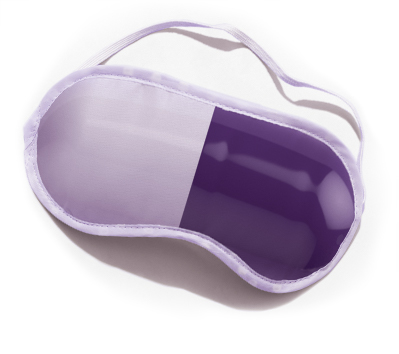
Make 2x the Impact Now
Make 2x the Impact Now
Our March Mission Match is underway, but not for long. Your gift by March 10 can go twice as far to advance research and help provide care and support for those living with Alzheimer’s and their caregivers.
Give NowResearch shows the brain benefits from good sleep
 Ahhhh! Waking up after a solid night’s sleep, fully refreshed and ready to go. Is there any better feeling?
Ahhhh! Waking up after a solid night’s sleep, fully refreshed and ready to go. Is there any better feeling?
But a good night’s sleep doesn’t just feel good, it also helps your brain and body function at its best. Sleep is a powerful part of a healthy lifestyle, offering benefits like improved immunity and reduced stress. The brain also uses this downtime to store and consolidate memories made throughout the day, while undergoing biological changes that help reduce the risk of conditions like Alzheimer’s.
“Everyone can benefit from better sleep, regardless of their cognitive abilities,” says Heather Snyder, Ph.D., Alzheimer’s Association vice president, Medical and Scientific Relations. “It’s the quality of sleep, not necessarily the quantity, that may help your brain function at its best.”
The exact link between Alzheimer’s and sleep is still a mystery, but recent research suggests that poor sleep is associated with an increased risk of Alzheimer’s, and sleep may also be an early indicator of the disease. Below are some findings worth keeping in mind as you hit the sack.
Sleep deprivation may increase risk
According to a study conducted at Washington University in St. Louis, chronic poor sleep leads to an increase in beta-amyloid, a protein in the brain that is a hallmark of Alzheimer’s.
During sleep, the brain “takes out the trash,” clearing harmful material, including beta-amyloid. But during a night of sleep deprivation, the brain produces more of the protein than it can clear efficiently. Researchers found that an awake brain continues to produce the protein — but a sleeping brain produces much less.
Staying physically active may help the brain
Physical activity is a valuable part of any overall body wellness plan and is associated with a lower risk of cognitive decline. Keep your heart healthy to help keep your brain healthy.
Deep sleep cleans the brain
During deep sleep, the brain emits electrical signals, or slow waves, that trigger a pulse of fluid, washing away toxins associated with Alzheimer’s. In two studies, researchers at Washington University in St. Louis and Boston University discovered that when older people have less slow-wave (deep) sleep, they have higher levels of the protein tau in the brain — which is associated with Alzheimer’s and frontotemporal dementia — and that the brain’s ability to clear out toxins becomes impaired. These findings suggest that poor quality of sleep later in life may be an indicator of the disease, and that getting better quality sleep — along with other lifestyle changes like diet and exercise — may reduce the risk of developing Alzheimer’s.
A new study, U.S. POINTER-zzz, aims to provide more answers in this area over the next several years. The study will incorporate in-home sleep assessments as part of U.S. POINTER, a two-year clinical trial designed to evaluate whether lifestyle changes can protect cognitive function in people at risk of developing dementia.
Sleep medication may impact risk
With millions of Americans suffering from chronic sleep disturbances — like sleep apnea and insomnia — many turn to sleep medication for help. Preliminary research announced at the Alzheimer’s Association International Conference® 2019 (AAIC®) suggests that frequent use of sleep medication may impact dementia risk — but this differs by race and sex. It’s also not clear if these changes in risk are a result of the use of medications, sleep problems or a combination of these factors.
“We’re seeing growing evidence suggesting that the use of sleep medication and poor sleep in mid- and late-life may affect someone’s risk for developing dementia,” says Elizabeth Vernon, MS, who leads the Cache County Study on Memory and Aging — a population-based study of elderly residents of Cache County, Utah. “Additional research is needed to fully understand these findings, so my advice is to explore alternative sleep strategies.”
Healthy Sleep Habits for Better Rest
- Stick to a sleep schedule (same bedtime and wake time).
- Practice a relaxing bedtime ritual away from bright lights.
- Avoid naps, especially in the afternoon.
- Exercise daily.
- Create an ideal sleeping environment with room darkening curtains and a comfortable temperature.
- Turn off computers, smartphones and other devices at bedtime.
- Avoid alcohol, cigarettes and heavy meals in the evening.
- Wind down. Spend the hour before bed doing a calming activity.
Source: National Sleep Foundation
